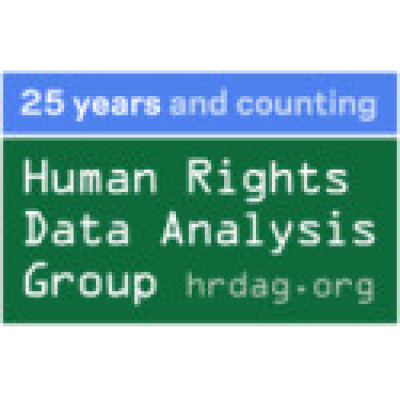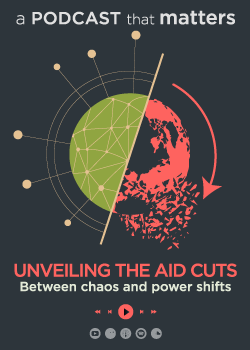Print

Human Rights Data Analysis Group (HRDAG)
General
Jobs • 0
Shortlists/Awards • 0
Pricing strategy • 0
Partners/Competitors • 0
General
Jobs
Shortlists/Awards
Pricing strategy
Partners/Competitors
Details
Legal residence:USA
Organization type:NGO
Funding agencies: Other
Sectors: Human Rights
Status:
Active
About
The Human Rights Data Analysis Group is a non-profit, non-partisan organization that applies rigorous science to the analysis of human rights violations around the world.
They are non-partisan—they do not take sides in political or military conflicts, nor do they advocate any particular political party or government policy. However, they are not neutral: they are always in favor of human rights. They support the protections established in the Universal Declaration of Human Rights, the International Covenant on Civil and Political Rights, and other international human rights treaties and instruments.
HRDAG began in 1991 when Patrick Ball began creating databases for human rights groups in El Salvador. After a project in Ethiopia, he joined the Science and Human Rights Program at the American Association for the Advancement of Science (AAAS), in 1994. Many colleagues joined him over the years, and the HRDAG name was first used in a grant proposal to the John D. and Catherine T. MacArthur Foundation in 2002. In 2003 the Group migrated to Benetech, a non-profit Silicon Valley technology company. In February 2013, HRDAG left Benetech to became a non-profit project of Community Partners®.
They are scientists, not advocates. As scientists, they work to support their partners—the advocates and human rights defenders who “speak truth to power”—by producing unbiased, scientific results that bring clarity to human rights violence and by ensuring that the “truth” is the most accurate truth possible. While their partners—international and local human rights groups—advance human rights by listening to and amplifying the voices of victims of human rights violations, by shaping the questions they address and by guiding the data collection, they use technical and scientific expertise to analyze the invaluable data they collect. With this data, they use rigorous quantitative reasoning to understand patterns of violence, and even to make statistical estimates of events that are not in the data.
For their projects, data come from many sources. They have used individual testimonies, legal depositions, probability surveys, administrative records from morgues and cemeteries, exhumation reports, operational records from a prison, career information on military and police officers, eyewitness interviews, and official customs and immigration records. They work with partners to help them make decisions about the databases and systems they might use to collect and manage data; their primary focus, however, is on the rigorous scientific analysis of their partners’ data.
Top partners

Top competitors


Similar Companies
By Sectors and Organization Types
Country:
Mali
Awards:
0
Jobs:
0
Country:
Peru
Awards:
0
Jobs:
0
Country:
Kenya
Awards:
0
Jobs:
0
Country:
Tanzania
Awards:
0
Jobs:
0



